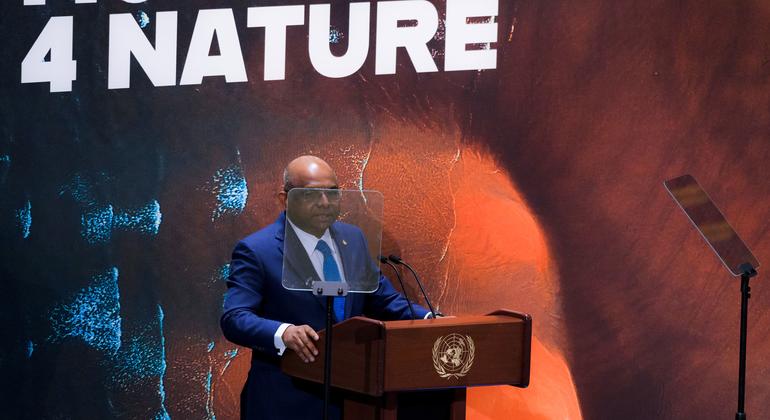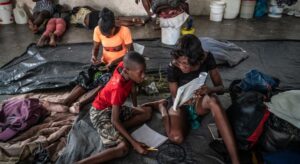
[ad_1]
The one-day meeting was organized to take stock of recent decisions on the global climate agenda and propose solutions for common constraints.
UN General Assembly President Abdullah Shahid said in this program, “Know that we have pushed ourselves into a corner with our irresponsibility. We also know that if we continue to delay taking this necessary action, this situation will get worse, and very quickly.”
limitless possibilities
He said that despite the immense challenges facing the world, humanity can bring about change, as seen in the development of technologies that were once thought unimaginable.
Abdullah Shahid said, “I myself remember a time when the power of renewable energy sources was considered too weak and expensive to make much of an impact or make a difference. Today, convoys of vehicles and countless houses run with the help of renewable energy. Entire cities and countries aspire to depend on renewable energy. The possibilities are immense.”
Global ‘triple crisis’
UN chief António Guterres welcomed the meeting in which delegates discussed climate, desertification and biodiversity; The state of the oceans, and information from major UN conventions on issues such as sustainable transport, food systems and energy have been reviewed.
The meeting comes at a time when, in the words of the UN chief, the world is facing a triple threat – climate disruption, biodiversity loss and pollution.
In a video message, the UN chief said, “Our lifestyles based on production, consumption, waste and pollution have led us to dangerous situations.”
“But since human activities are at the root of this disaster on planet Earth, it means that we also hold the key to the solutions. Now is the perfect time to change and forge a new path in our relationship with nature.”

A women’s cooperative in the south of Mauritania uses solar energy to operate wells that supply water to gardens.
take action now
UN Deputy Secretary-General Amina J. Mohammed listed some areas where countries’ governments can take action, including changing the way they view and appreciate nature.
He said, “We have to strengthen the capacity of nature to protect us from troubles and extreme events. This means – speeding up the implementation of the country’s restoration policies, programs and plans for marine and regional ecosystems. It also includes creating new jobs, ending poverty and improving sustainable development.
Amina J Mohammed said that countries will have to fill the gap in finance for biodiversity by 2030, which is currently $ 700 billion per year.
[ad_2]
Source link





